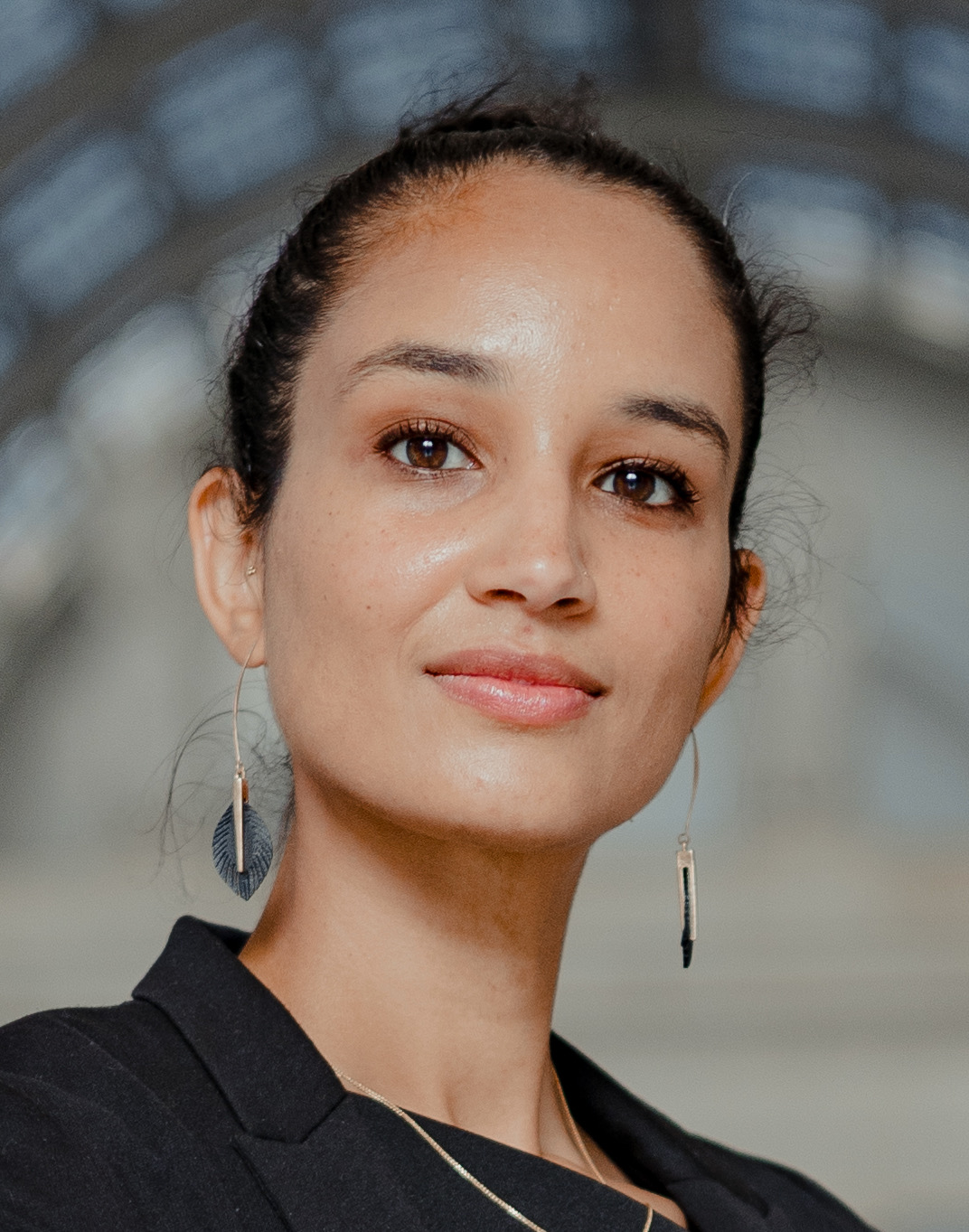Date: Wednesday, August 16th from 4:00 – 5:00 pm ET
Discussion Description:
This session helps prepare individuals for interviews and give you an opportunity to ask questions and seek personalized advice from experienced faculty in the Section on Minority Groups.
*Registration is required
 Almas Kahn, Assistant Professor of Law, University of Mississippi Law Center
Almas Kahn, Assistant Professor of Law, University of Mississippi Law CenterAs an intellectual historian, Khan works at the intersection of law, literature, and citizenship studies. She researches how intellectual movements in law and letters have sparked the reimagination of U.S. citizenship since the Civil War, with a focus on African American, working-class, and women’s experiences. Khan’s teaching synergizes with her scholarship, applying insights from critical pedagogy and cultural legal studies to courses including U.S. constitutional law, judicial politics, and legal writing. Global disciplinary and geographic perspectives infuse Khan’s work, which draws on postcolonial theory and her experiences teaching international Master of Laws students.
Khan’s scholarship often centralizes figures whose identity or disciplinary hybridity has resulted in their marginalization from conventional accounts of U.S. legal history and jurisprudence. Her book-in-progress, An Intellectual Reconstruction: American Legal Realism, Literary Realism, and the Formation of Citizenship, analyzes how major post-Civil War movements in American law and letters participated in the process of equitist national rebuilding through the seemingly insular process of disciplinary reformation. Dr. Khan’s research has been published in several edited collections and in journals including the Chicago Journal of International Law, the Washburn Law Journal, and the Cambridge Journal of Postcolonial Literary Inquiry. Her scholarship has been supported by organizations including the National Endowment for the Humanities and the Legal Writing Institute. She has also presented at conferences sponsored by the American Studies Association; the Association for the Study of Law, Culture and the Humanities; and the African American Intellectual History Society.
Khan’s pedagogy aims to empower students as nascent scholars and lawyers, seeing the classroom as a space where, in Paolo Freire’s terms, a “teacher-student” interacts with “student-teachers” on a joint journey of discovery. Interdisciplinarity and intellectual risk-taking are hallmarks of Khan’s teaching, including in previous positions at Georgetown Law and the University of Miami School of Law. To instigate student learning, she uses cultural legal studies materials like films as well as realistic exercises that tap into her prior work in areas including civil rights law and environmental law. She has also advised students who have published articles on subjects spanning from queer rights to international economic law. Khan’s scholarship on legal pedagogy is informed by these experiences and has appeared in journals including The Law Teacher and Perspectives: Teaching Legal Research & Writing. Her recent pedagogical research dovetails with her book project in emphasizing equitable, asset-based approaches to teaching as academia and the legal profession continue to diversify.
 John Rice, Assistant Professor of Law, Lincoln Memorial University Duncan School of Law
John Rice, Assistant Professor of Law, Lincoln Memorial University Duncan School of LawLincoln Memorial University Duncan School of Law (LMU Law) announces the hiring of John Rice as a tenure-track Assistant Professor of Law. He will teach, among other courses, Business Organizations, Civil Procedure, and Legislation and Regulation.
Rice will join the faculty of LMU Law for the 2023-2024 academic year. Rice previously taught for seven years at the University of Tennessee College of Law, the University of Massachusetts College of Law, and the Thomas R. Kline School of Law of Duquesne University. Rice teaches and writes about the legal environment of business and social change, civil procedure, professional responsibility, and legislation. He is devoted to excellence in teaching and endeavors to provide students with training in legal theory, practice skills, and professionalism. Additionally, he has spoken nationally about Corporate Social Responsibility, corporate governance, legal ethics, and anti-discrimination laws, and his scholarship has been published in the Northeastern University Law Review and the FIU Law Review.
Prior to entering law school teaching, Rice served as a judicial clerk for the Supreme Court of Tennessee and practiced civil litigation in Knoxville. He is a member of the Tennessee and South Carolina Bars, and he is admitted to practice in the United States Court of Appeals for the Sixth Circuit. He has a distinguished record of service with the American Association of Law Schools and the American, Tennessee, and Knoxville Bar Associations, and he is a Fellow of the American Bar Foundation.
A native of Greenville, South Carolina, Rice graduated from Clemson University, and then earned his law degree from the University of Tennessee College of Law. While in law school, Rice served as the President of the Student Bar Association and the Vice Chair of the Moot Court Board, competed in the Dean Jerome Memorial Evidence Moot Court Competition at Brooklyn Law School, and was honored with the Order of the Barrister and the ALI-ABA Scholarship and Leadership award.
“I consider it a privilege and honor to join the faculty at LMU Law,” Rice remarked. “I share LMU Law’s commitment to expanding access to justice and serving the underserved. I am most excited to help train the next generation of lawyers to be community servants and leaders who will work to make the legal profession more accessible, equitable, and diverse.”
Outside of class, Rice enjoys exploring the vibrant Knoxville community, spending time with family and his beagles, and attending events at the Tennessee Theatre. The highlight of his year is a trip to New York City to take in a Broadway show or two and enjoy the Christmas festivities.
The Lincoln Memorial University Duncan School of Law is located in Knoxville’s Historic Old City Hall Building. LMU Law is an integral part of LMU’s value-based learning community and is dedicated to preparing the next generation of lawyers to provide sound legal service in the often-underserved region of Appalachia and beyond. For more information about LMU Law, call 865.545.5303 or visit us online at Law.LMUnet.edu.
 Tuneen Chisolm, Associate Professor of Law, Howard University School of Law
Tuneen Chisolm, Associate Professor of Law, Howard University School of LawTuneen Chisolm is an Associate Professor of Law at Howard University School of Law. A legal scholar in the areas of Intellectual Property and Reparations, Professor Chisolm focuses her research on exploration of, and practical remedies for, moral conflicts and equity issues posed by the granting and/or restriction of certain intellectual property and other intangible rights. She has published in such journals as the University of Pennsylvania Law Review, the Yale Journal of Law and Technology, St. John’s Law Review, and the University of Pennsylvania Journal of Law and Social Change. Professor Chisolm teaches an array of Intellectual Property and Entertainment Law courses and Constitutional Law; she has also taught Remedies, Professional Responsibility & Ethics, and Property. She brings to her teaching and scholarship a uniquely extensive background in the practice of both law and engineering.
Professor Chisolm has been named to the National Roster of Arbitrators for the American Arbitration Association since 2010. Her ADR practice encompasses commercial business, complex construction, product liability, intellectual property, and entertainment disputes. A former litigator with many years of national practice experience focused on intellectual property, entertainment, unfair competition, and commercial business disputes, and related counseling, Professor Chisolm has represented talent and corporate entities in a variety of matters related to music, film, television, literary arts, fashion, patents, chemical manufacture, software, product liability, and more. Prior to beginning her legal career, Professor Chisolm was a Research and Development Engineer in the biotechnology and specialty chemicals industries. Her work at the DuPont Company focused on initial efforts to address global warming and ozone depletion concerns and it led to Professor Chisolm being a named inventor on several domestic and foreign patents relating to development of early alternatives to CFC refrigerants and fire extinguishants.
Prior to joining the Howard law faculty, Professor Chisolm was a tenured Associate Professor at Campbell University School of Law in North Carolina. She currently serves as a Pro Bono Mediator for the North Carolina Office of Human Resources and provides pro bono attorney services on discrete entertainment and intellectual property matters.
Professor Chisolm earned her Sc.B. in Engineering (Biomedical) from Brown University, her M.S. of Chemical Engineering from Lehigh University, and her J.D. from the University of Pennsylvania School of Law, where she was on the Law Review. Following law school, Professor Chisolm clerked for the Hon. Consuelo B. Marshall (’58, L’61) in the United Stated District Court for Central District of California. Professor Chisolm is admitted to the New York, California, and Georgia bars.